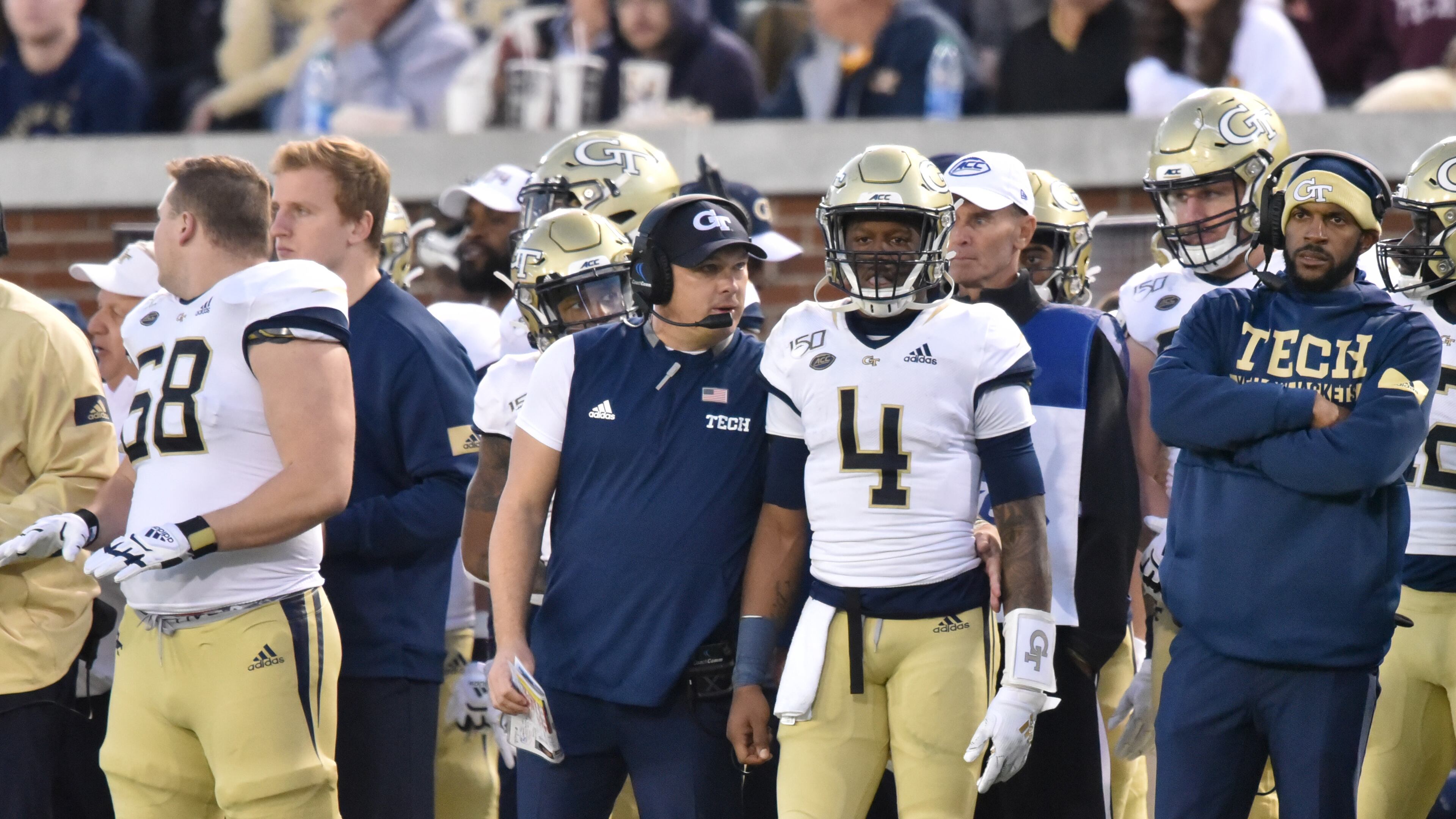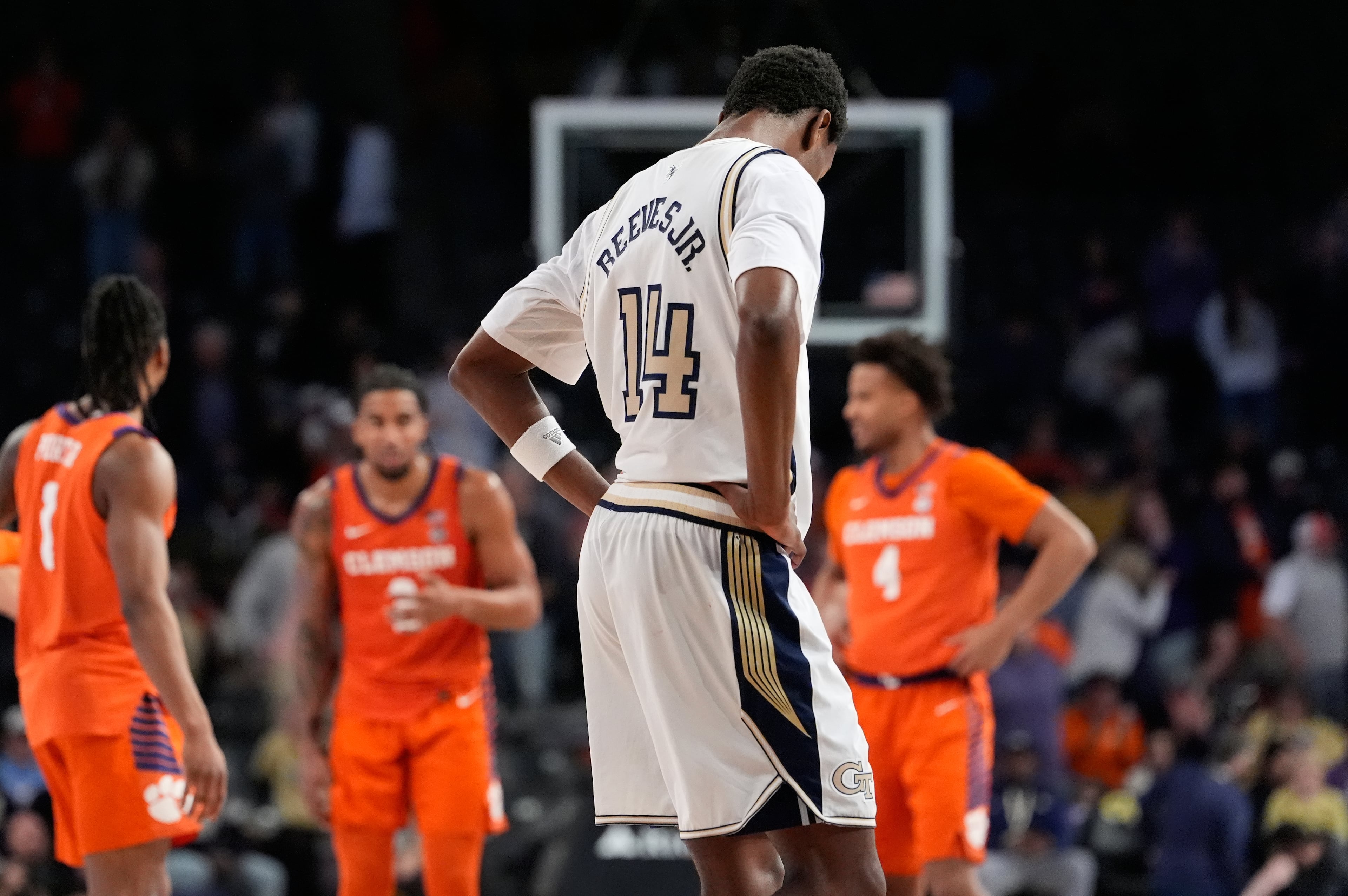Geoff Collins asks, ‘What are we going to do to truly effect social change?’

There have been sleepless nights in recent days, Georgia Tech coach Geoff Collins said, watching the news, scrolling through social media and reaching out to his Yellow Jackets players.
In the middle of a pandemic that has tossed his team’s routines up into the air, Collins has now taken on the charge of guiding a group of roughly 100 young men of different races, backgrounds and worldviews through a defining moment in the nation’s complicated history with matters of race.
In a video conference call with media Tuesday, Collins spoke of having “such intense, meaningful, thought-provoking conversations as a football team over the last five days that have really meant a lot to me, and I know it meant a lot to the guys that are on our team and our program and our staff.”
The death of George Floyd at the knee of a Minneapolis police officer and the protests and riots that have ensued have been the source of those online conversations, conducted in groups of varying sizes and with different collections of players and coaches.
A message that Collins has given players is his desire to play a role in racial justice. Collins said he has spoken to players both in groups and individually to tell them that, “I know that I might not be able to fix everything, but I want to play my part and play my role in making this world a better place and to make their experience better.”
Part of that role will be providing a channel for African American team members to be heard. Collins said that there are black team members who have shared their fear of going out after dark for safety reasons. That included one, he said, who told him that he was running low on groceries over the weekend and was contemplating going shopping after nightfall, but decided against it.
Collins called it heartbreaking, saying that his heart goes out to players whose fears for their safety prevent them from actions that others might not give a second thought.
He said that he wants them to feel the same comfort and believe that they have the same opportunities that his 4-year-old daughter Astrid does.
“You can sense and feel pain, anger – all of those things – with a bunch of strong, black men that are such unbelievable guys,” Collins said.
Collins said it was “really amazing” to hear players share their experiences and seeing how that has impacted teammates, both those who have felt the same things but didn’t realize that others felt them or those who had not, “and their heart goes out to them and they want to be a part of the change.”
Collins called it imperative that such conversations continue when the team is able to convene again in person and that resources such as public speakers, character-development coach Derrick Moore and sports psychologist Kayla Balcom are made available.
Collins said that “I’ve got a lot of young men” that want to be a part of addressing racial injustices and being part of a healing process. He said he told them that he was committed to it as well but that it can’t be effected merely through social-media posts or news conferences.
“It’s our daily walk that we’re going to have whenever we’re back together, when we’re able to be back out in the community,” he said. “What are we going to do to truly effect social change?”
Collins spoke on the friendship that his daughter has with the son of wide receivers coach Kerry Dixon, who is black. Astrid and Kerry III (known as Tr3y, pronounced “Tré”) were born roughly at the same time, when Collins and Dixon were both on the Florida staff. At Astrid’s third birthday party last year, Collins said, he recalled them staring out the window together, a moment shared between friends who know nothing of racism or hatred.
“It’s heart-wrenching that the world can’t be the way we’ve got it,” he said.


